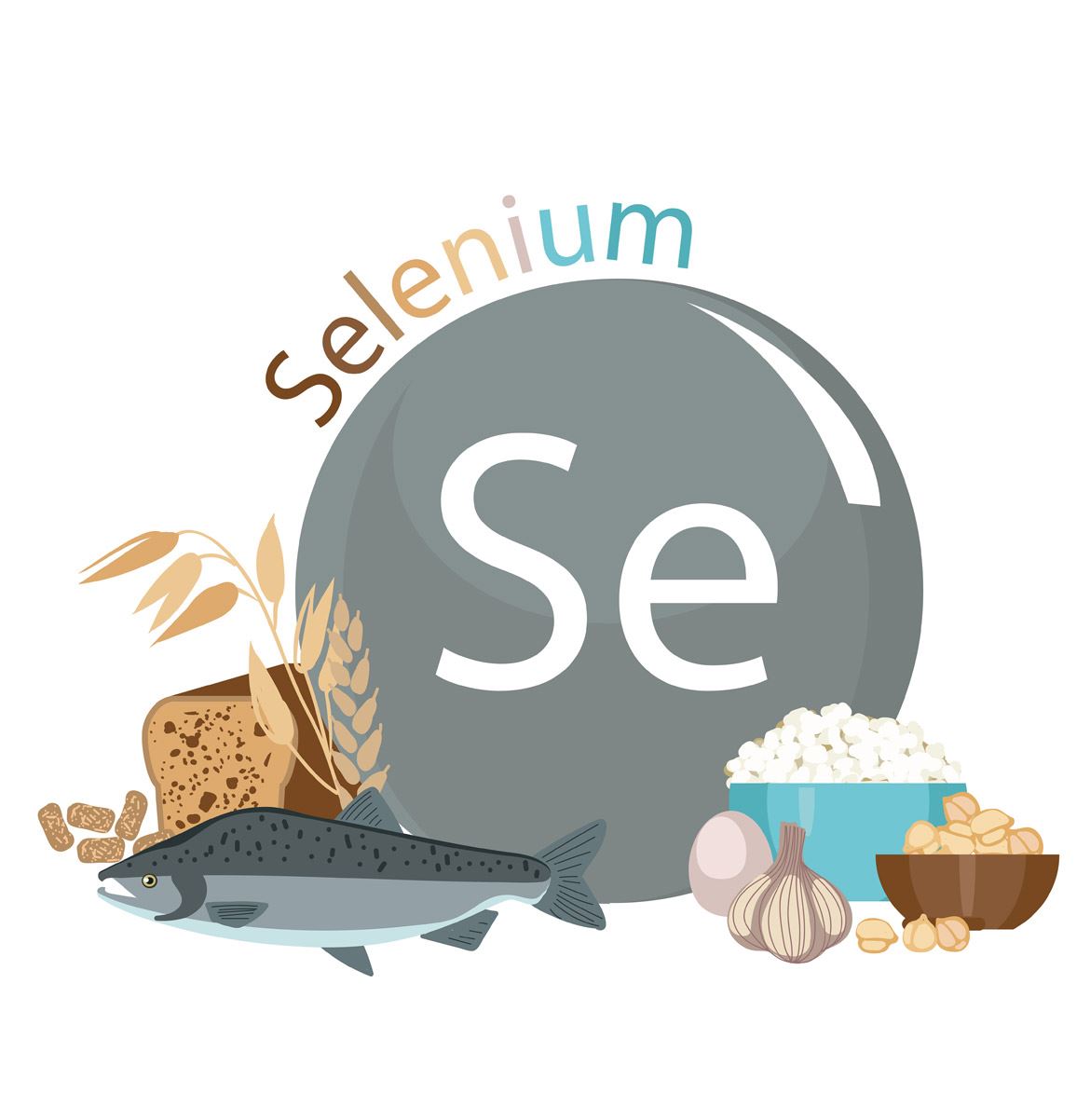Selenium
Selenium is a mineral found in soil, water, and some foods. It is essential for the correct functioning of many body processes.
Most of the selenium in the body comes from the diet. The amount of selenium in food depends on where it is grown. Crab, liver, fish, poultry are generally good selenium sources. The amount of selenium in soils varies widely around the world; This means that the foods grown in these soils also have different selenium levels. In the US, the East Coastal Plain and the Pacific Northwest have the lowest levels of selenium. People in these areas naturally get about 60 to 90 mcg of selenium per day from their diet. While this amount of selenium is sufficient, it is below the average daily intake of 125 mcg in the US.
Selenium is used for selenium deficiency, a disease that causes underactive thyroid (autoimmune thyroiditis) and high blood pressure during pregnancy. It is also used for heart disease and blood vessels as well as many other conditions, such as stroke, complications from statin medications, and abnormal cholesterol levels.
Selenium is essential for the correct functioning of many body processes. It increases the effect of antioxidants.

